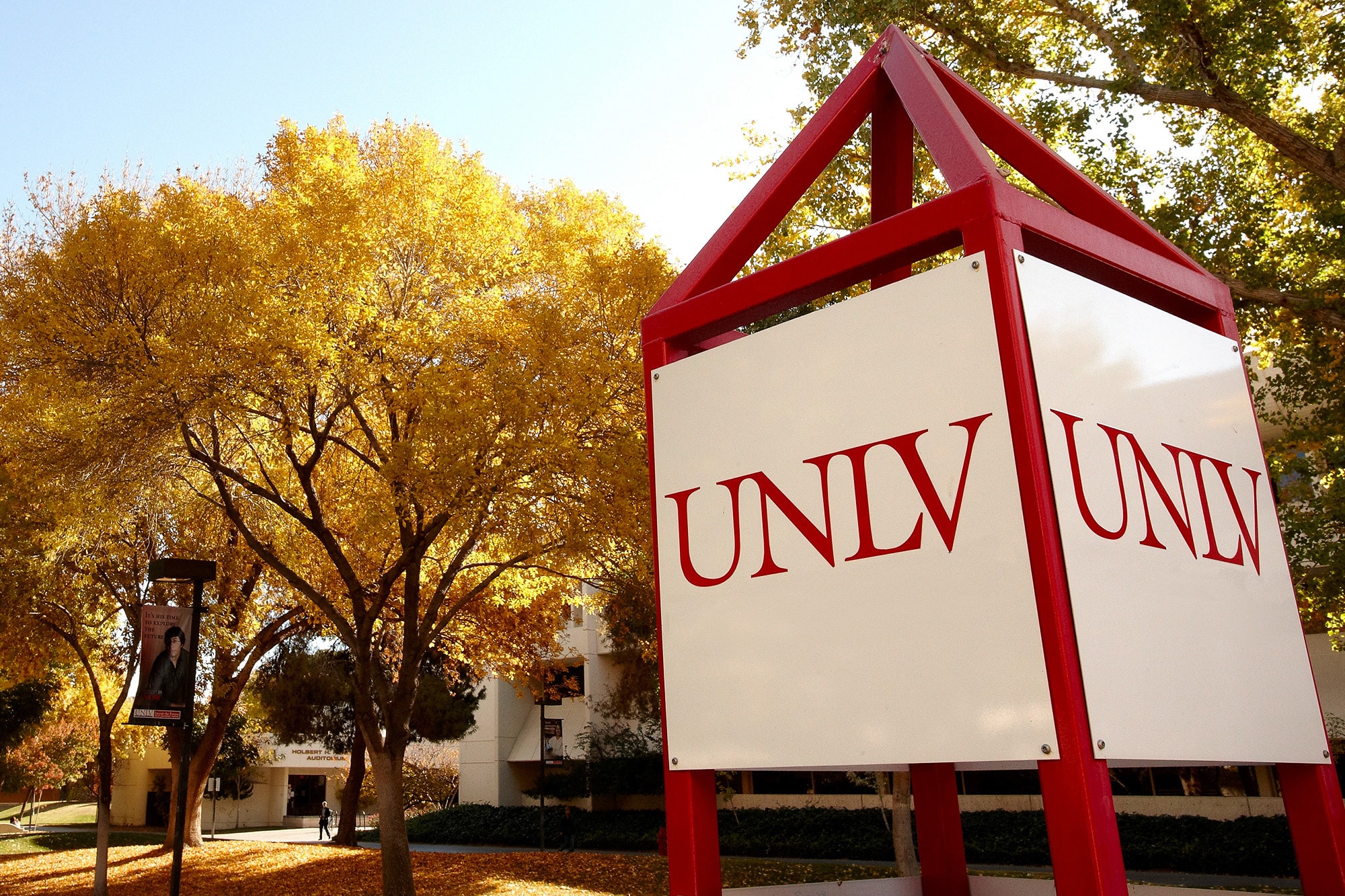Passage of federal lands legislation on Thursday opened the door for UNLV to develop a research park on a 115-acre parcel of land near the beltway in southwestern Las Vegas Valley, according to UNLV President Carol C. Harter.
The Clark County Public Lands and Natural Resources Act of 2002, introduced by Sens. Harry Reid and John Ensign, was approved by the U.S. Senate on Thursday (Oct. 17). Identical legislation introduced by Rep. Jim Gibbons passed the House earlier in the week. It establishes thousands of acres of land for wilderness preservation as well as areas for development. The legislation must be signed by President Bush before it becomes law.
"Securing this property is an incredibly beneficial asset to UNLV and, indeed, to the entire community," Harter said of the land located near the intersection of Durango Drive and Sunset Road. "We have been planning for some time to develop a research park when space became available. The location of this property is extremely advantageous. It will be near a major interchange on the beltway and adjacent to property that we believe will become sites for high-tech businesses.
"Most importantly, this property will enable us to dramatically expand university research and contribute significantly to economic development in Southern Nevada through partnerships between the university and private businesses," Harter said.
Provost Ray Alden noted that, "Research parks in other parts of the country have become magnets for high-tech companies."
Harter said UNLV is very grateful to the members of the Nevada Congressional delegation - Reps. Gibbons and Shelley Berkley and Sens. Reid and Ensign - for their support and hard work in passing legislation that will preserve natural lands and provide a stimulus to economic development in Southern Nevada.
"We are, as always, especially grateful to Sen. Reid for his tremendous support of research at UNLV," Harter said. "His leadership on this issue will prove to be of great value to his state. We also are thankful for Sen. Ensign's and Congressman Gibbons' bipartisan support."
Reid noted that, "Everyone wins with this legislation. ...We reached a broad, bipartisan compromise that will balance growth and development while protecting natural resources."
"Senator Reid, Congressman Gibbons, and I have achieved a consensus that is good for all citizens in Clark County," Ensign stated. "The lands bill is the culmination of over a year of work by a diverse group of Nevadans who are truly concerned about the future. I am gratified that, among many other benefits, this bill advances UNLV's academic tradition."
The UNLV Research Foundation will begin working on a plan to develop the land into a research park, according to Tom Williams, executive director of the foundation. The park will probably house various research clusters in areas such as biotechnology, materials science and alternative energy research, and other endeavors directly related to research programs in place on the UNLV campus and to economic development in Southern Nevada.
Campus officials expect the land to transfer to UNLV by the end of this year.
"This will be a place where UNLV's students and faculty researchers will work side-by-side with private companies," said Stephen Rice, vice provost for research, who hopes to see the park become a center for information technology research.



